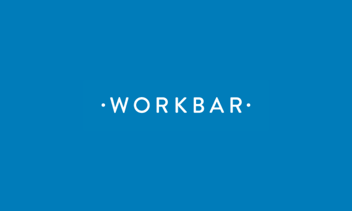Why Boston’s “New Normal” Might Actually Be a Good Thing: Making Work Work, CEO Series Vol. 4

When it comes to the dreaded return-to-office, Boston hybrid work has reached a kind of equilibrium. Three days a week has quietly become the sweet spot for many companies, with some going up to four, and others keeping Fridays flexible (read: empty). As the Boston Globe recently reported, that balance seems to have “settled.” For downtown businesses hoping for a tidal wave of commuters, this might be as good as it gets.
But here’s the thing: equilibrium isn’t a bad word. It’s a sign we’ve finally landed somewhere stable after years of flux.
Downtown Boston at a Crossroads
The Globe paints a vivid picture: Milk Street Café waiting for the next domino to fall, commuter rail ridership plateauing, and downtown foot traffic still 30% below 2019 levels. At the same time, landlords point to positive signs (shocking…I know), new office leases signing, restaurants thriving, and even a few office-to-residential conversions breaking ground.
The question is, what does this mean for the future of work in Boston? Are we really going back to 2019, or is it time to build something better?
Lessons From San Francisco’s AI Boom
To understand what’s next for Boston, it’s worth looking west.
In September 2023, Salesforce CEO Marc Benioff declared on X: “It’s another truly amazing gold rush!” He was celebrating San Francisco’s AI-fueled revival, with nearly 1 million square feet of new office demand. Fast forward a few months and Salesforce shed another 700,000 square feet, and a third of the city’s office space remained empty.
Across cities in North America, the economy is booming, but office demand is slumping. Historically, GDP growth meant job growth meant office growth. Now, that connection is broken. Remote and hybrid work, accelerated by AI, have permanently decoupled economic vitality from office leasing.
The five stages of office grief, denial, anger, bargaining, depression, acceptance, are still playing out in boardrooms and city halls. But the truth is, pre-pandemic demand isn’t coming back. And that’s not failure. It’s freedom.
Freedom to rethink what downtown Boston’s future can be.
Hybrid Has Won
Surveys confirm it: most Boston employers have landed on hybrid schedules and are sticking with them. Unlike Manhattan, where office visits have surged beyond pre-pandemic levels, Boston is choosing a different path. A distinctly Boston path, practical, steady, and less swayed by mandates.
That’s not failure. It’s culture. Boston has always had a way of balancing tradition with innovation. Our model of hybrid work reflects that balance.
Why Hybrid Matters More for Women
But here’s something that rarely gets enough airtime: hybrid isn’t just about flexibility. It’s about equity.
Recent research from Cushman & Wakefield, McKinsey & Company, and others shows that women prefer more flexibility than men, and not only because they’re more often the primary caregiver. One reason is that bias and discrimination are nearly twice as likely to happen to women on-site as when they’re working remotely. Professors Laura Doering and András Tilcsik found that 31% of women experience discrimination in the office versus 17% when remote.
And the numbers worsen in male-dominated teams: 58% of women reported discrimination on-site compared with 26% remote.
The stakes are high. In the last year, the workforce participation of women with children under five dropped by three percentage points from its historic high. As labor economist Misty Heggeness put it: “It’s become harder for women, particularly those with caregiving responsibilities, to thrive in this job market. The return-to-office chest pounding is having a real ripple effect.”
Hybrid isn’t a cure-all. But we’ve known for years that the ability to work in the office 2–3 days a week and from home 2–3 days disproportionately benefits women, people with disabilities, and other historically disadvantaged groups. Five days a week may work for some, but it risks forcing many others to tune out, drop out, or leave altogether.
Why I’m Optimistic About Boston
At Workbar, we’ve built our business on exactly this shift. We don’t rely on one downtown tower to fill our space, we’ve created a coworking network across Greater Boston that allows teams to work near home, not at home. Every day, we see how hybrid creates opportunity, not just convenience.
The Globe is right: this may be as good as it gets for downtown. But “as good as it gets” for one part of the city can be the spark for growth in others. Suburban hubs are thriving. Flexible coworking is becoming the norm. And Boston’s innovation economy has the chance to lead, not by copying New York’s density, but by pioneering a model that works for our people, our culture, and importantly, our equity.
Hybrid isn’t a stopgap. It’s the foundation for a more inclusive workforce, and the future of making work work in Boston.


